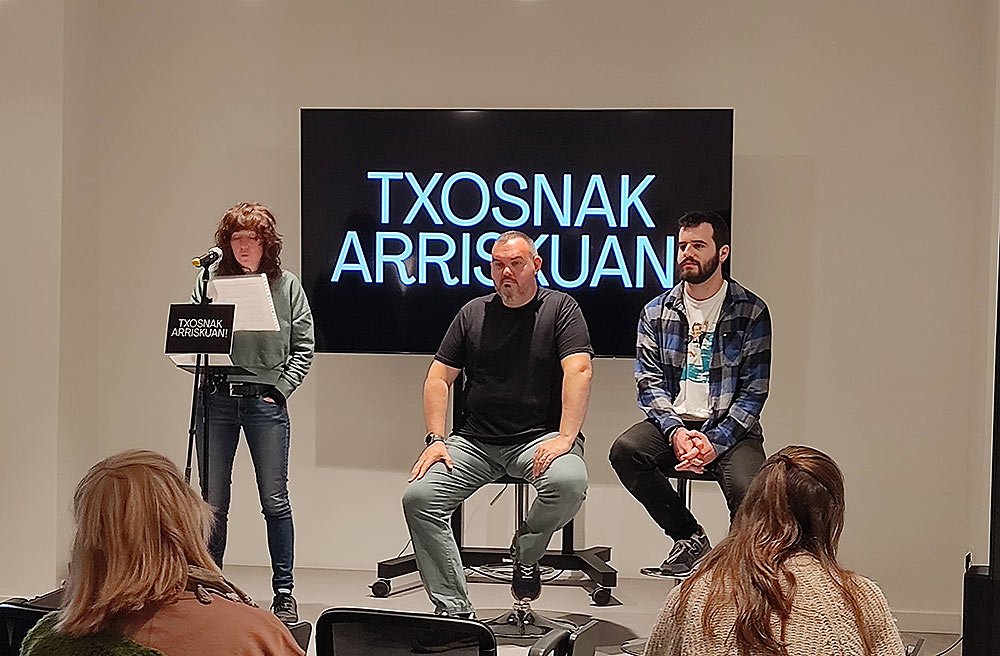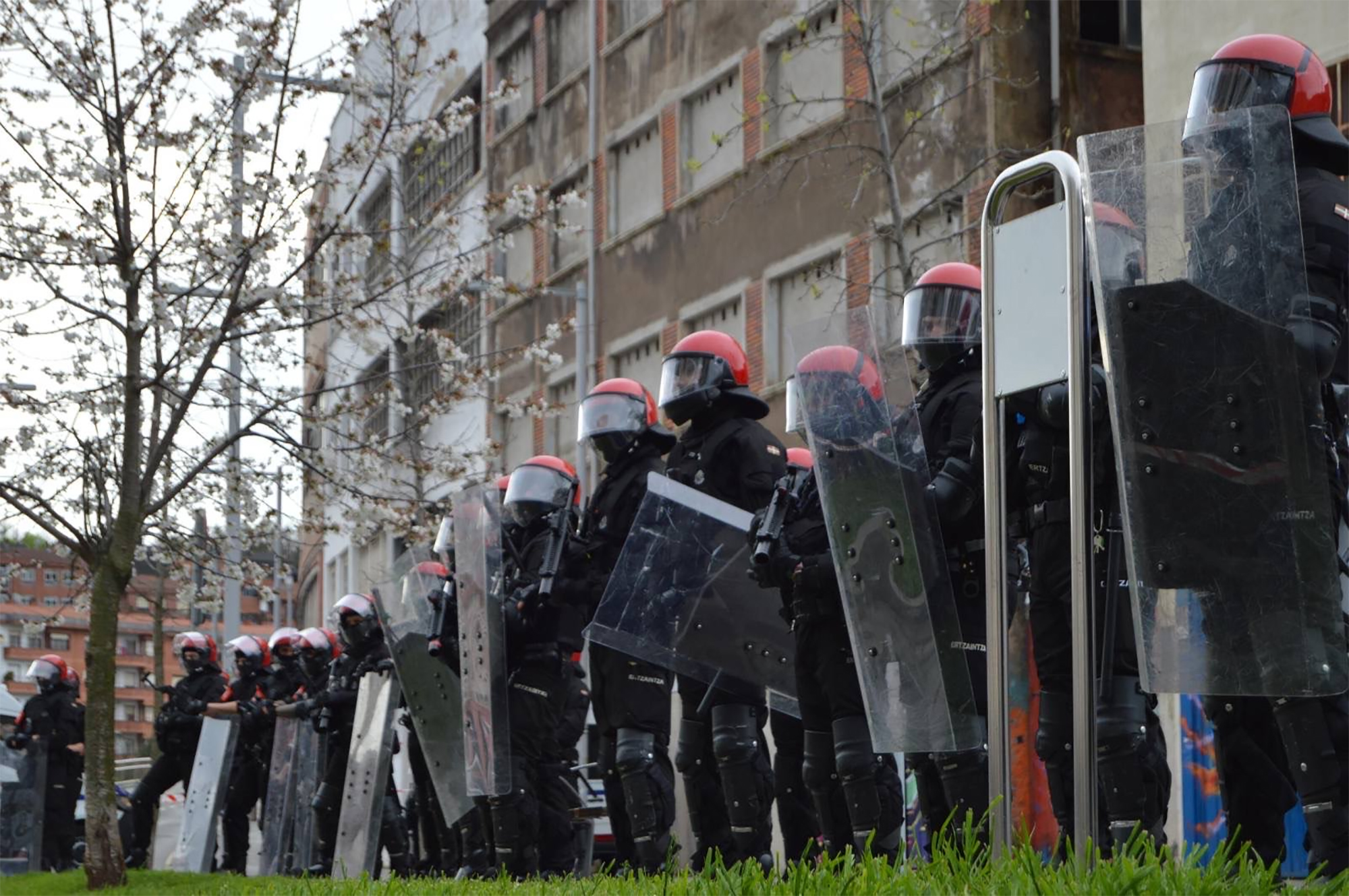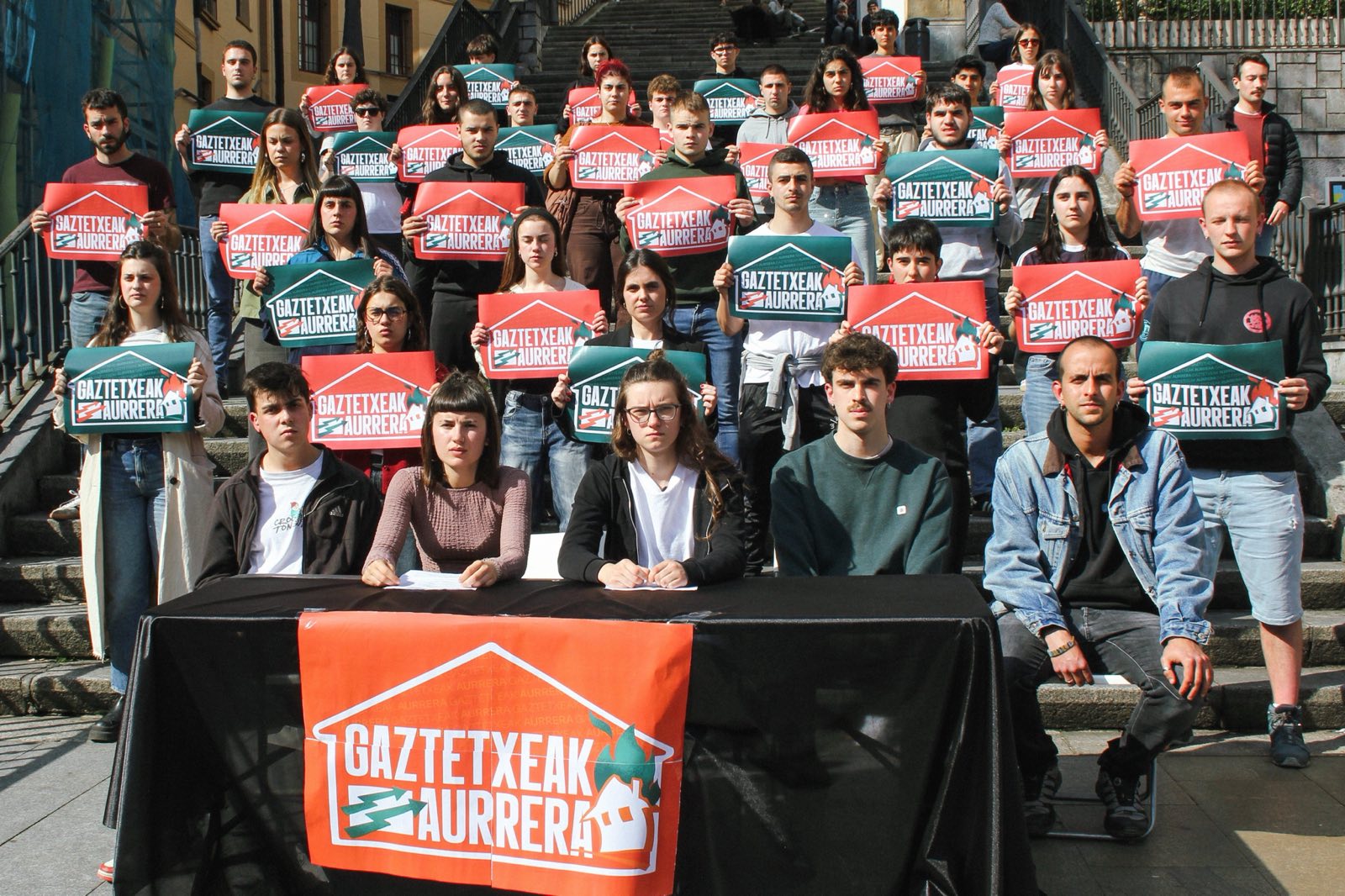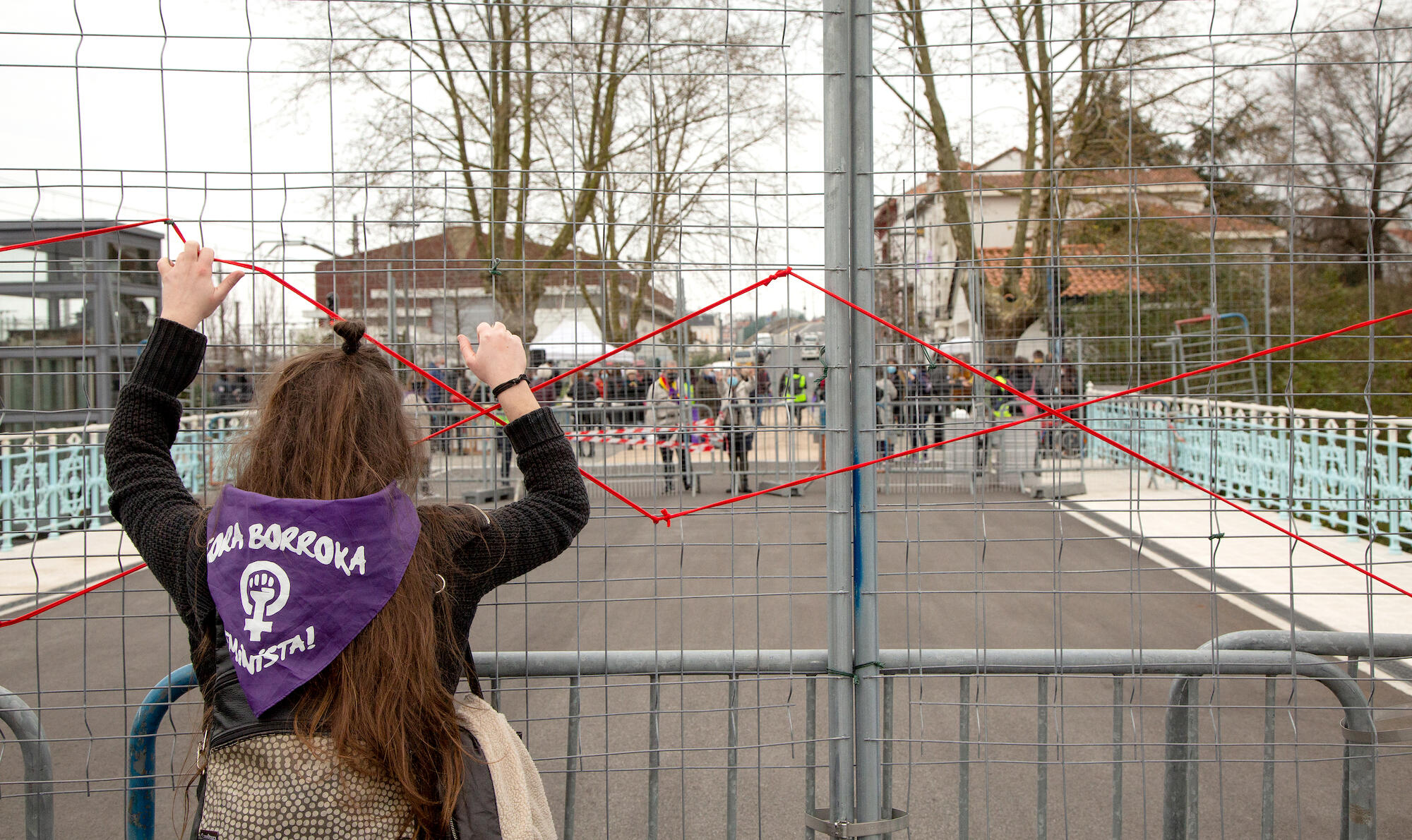Criticisms of the system since the baby's abduction
- The fact at the Basurto Hospital highlights Osakidetza's lack of resources, the practice of separation of newborns from childbirth or stigma and violence towards psychiatric people.

A woman kidnapped a baby last night at Basurto Hospital (Bilbao). Before stealing that child, he tried with other newborns. The Ertzaintza called for citizen collaboration to find the offender and opened a picture recorded by the security cameras. The baby was found on Thursday morning in a house in the neighborhood of Santutxu, saved and saved. The alleged author was arrested in Zorroza and only the age data (24 years) was provided by Security Advisor Josu Erkoreka. On the other hand, Deia and El Correo report that the woman made her family member, neighbor and partner believe that she was pregnant. They have determined the name of the detainee and the neighbourhood in which he lives, as well as other sensational details provided by the neighbours.
The readers have left the following comments on the social media of the newspapers: “Let them find it, let them wrap it up and throw it into the estuary.” “No Hostias.” “Let him get corrupted in jail.” This critical analysis aims to prioritize informative treatment that arouses fear and punitivism, and to change the focus of attention from the morb of an isolated fact to the bottom of the structural problems.
The hospital as a space of power and instability
Nora Olazabal is a doctor of Osakidetza on maternity leave. When he learns of the news, with the lack of resources that hospitals experience, he has made the mistake in safety: “The templates are very variable. It’s very common for workers to change from one pavilion to another, which means people don’t know each other.”
Moreover, it underlines that postpartum protocols state that tests on newborns will be performed before the parents (or the person designated by the mother): “I know I have that right but, unfortunately, not all mothers know it. This information must be guaranteed by the hospital.”
There were two similar cases at Donostia Hospital in 2012 and 2014. According to writer Katixa Agirre, this shows that postpartum hospitalization is a vulnerable time for parents and newborns: “It’s very curious that a stranger says he has to take your child and that you accept it, even though his instinct commands him to protect the child. This would not happen in any other area, and is a reflection of the authority of health professionals”.
In the same vein, Nahia Alkorta, an advisor who supports maternity processes, speaks: “At a time of great vulnerability, it’s amazing that anyone can take a child out of the hospital from a role of power.” Although critical of the medical system, it emphasizes that parents cannot be accused of trusting the woman who presented as a nursing assistant: “The family is not responsible for ensuring safety, they do not have to distrust the health staff. The same system that demands trust is the one that has subsequently translated a sense of responsibility into the family. Unfortunately, we must not forget that there are still health centres where mother and child are distributed. The responsibility lies with the system and with the executor of the action, in no case with the family”.
Alkorta calls for effective measures and resources so that it does not happen again: “Not only QR code bracelets. More personal means to control plant inputs and outputs (but not security companies). A permanent position of administrators, auxiliaries and nurses is needed to collect what families may need.”
Childbirth is our (Childbirth is ours) is the founder of the association Ibone Olza, perinatal psychiatrist. He says that this news should serve to end once and for all the habit of distributing the father and the baby he has given birth: “The newborn must always be with his mother and, if not, with the trusted person of the mother.” Thus, in addition to empathizing with the serious situation of a given child for ten hours, he asks that the concern felt by isolated children in hospital nests be appreciated.
"It's very curious that an unknown person says they have to take your child and you accept it. It would not occur in any other area, and it is a reflection of the authority of health professionals"
Stigma of insanity
Katixa Agirre Am is not the author of the novel to explain the pulse of child theft: “For those who have a very conflictive relationship with motherhood, it can be a framework for insanity.” Cristina Barcala, partner of the Zoroa association, believes that maternal pressure causes high emotional stress in many women. “Where will a woman lead insanity? Don’t let it go in a car workshop…”
She adds that men often develop psychiatric disorders as a result of drug abuse, but in the case of women the origin is social: “Patriarchal society leads us to extreme situations. Even more so if we are not women, we are poor or racist. In these cases, it is easier to reach collapse. We beat the dog and when it bleeds we want to sacrifice it.”
She mentions a reality that may be behind this conflicting relationship with motherhood: the sterilization of force, which is imposed on many people with disabilities by psychiatric women, either through surgical interventions or through drugs that impair fertility.
Nora Olazabal, a psychiatrist, confesses that he has linked the detainee's behavior with psychosis: “Crimes without logic often have a mental illness. Anyone knows that if he steals a child he will be searched and detained by the police. It is probably an action of someone who has moved from the world of fantasy to the world of delirium.” He says that in recent years the issue of mental health has become fashionable, but there is only talk of “soft” problems, such as mild anxiety. “As for the strong evils, society prefers to look elsewhere.” In any case, he is concerned about the narrative that the media will disseminate: “The message that comes to us is that it’s crazy to steal children.”
Barcala laments the prejudice that people living with psychic pain are dangerous. “The media promotes this imaginary because it awakens the morb.” Both psychiatrists and activists recall the problem of children stolen from Franco and in the transition to point out that it is easier to lynch a woman with disorder than to a criminal network organized in the power camps.
The psychiatric diagnosis of the detainee may affect the criminal penalty. If a type of confusion is diagnosed that leads to a loss of connection with reality, it will not be imputable. If, on the contrary, you have other mental or addictive problems, you will be considered palliative in the trial. In both cases they will impose psychiatric treatment. Barcala questions that this is a mechanism to protect psychiatric people: “Psychiatry does not cure anyone. The psychiatric hospital seems to me as repressive as prison. We use the [psychiatric system] system to cover the deficiencies of the system.”
Barcala presents himself as a relaunch of psychiatric violence and wants to emphasize the violation of the system: “I’ve met women who have experienced obstetric or psychiatric violence in Basurto’s own hospital. I have also met mothers who have rejected newborns: instead of helping them progress in motherhood, the system has drugged women and taken children away.” In addition, Katixa Agirre and Nahia Alkorta mention the power we have given to medicine: “The news sows panic by believing that the hospital is synonymous with science and safety. How is it possible that you feel safer than in our house giving birth to a apron among strangers of white color? People are not afraid of everyday violence in the hospital.”
Barcala mentions some dramatic cases of psychiatric mothers who have known the Crazy Pride of the State through the movement: “An auxiliary mother who entered the psychiatric ward was blackmailed: if she did not eat, she would stop visiting her son. Another friend denounced her husband for machista violence, diagnosed him with schizophrenia at trial, questioned his complaint and taken away his daughter’s guardianship.” Thus, although Basurto's news understands the terror he has produced, the crazy activist has repeated that the psychiatric and judicial system are more threats in the lives of mothers.
The Department of Education reported on diagnostic evaluations in February: He talked about the mid-stage of 2023 and the end-stage of 2024. Since the disastrous results would show that we have a structural problem, the department decided to comply with the procedure (publish... [+]
The pandemic has revealed, in all its crudeness, the consequences of the neoliberal model of care for the elderly, children and the dependent population. Now is the time to consolidate the critical discourses and community alternatives that flourished during the lockdown.”... [+]





















